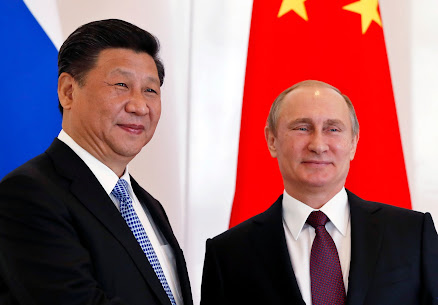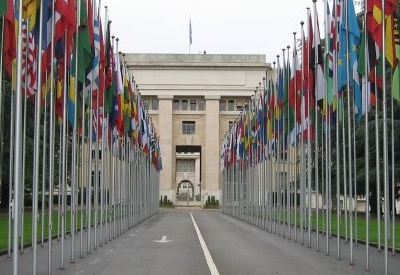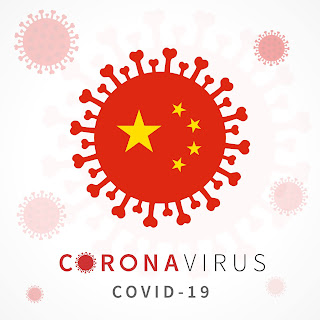Xi cracks down on corruption; Beijing, Moscow imposing their will
From September 1 2014
John Stuart Mill wrote in “FromConsideration on Representative Government”… that “There is no difficulty in showing that the ideally best form of government is that in which the sovereignty, or supreme controlling power in the last resort, is vested in the entire aggregate of the community; every citizen not only having a voice in the exercise of having of that ultimate sovereignty, but being, at least occasionally ,called on to take an actual part in the government…”1)
China, Cuba, Laos, North Korea, andVietnam lay claim to belonging to an exclusive membership regarding socialist regimes. While Russia is labeled a “managed democracy,” current actions by the Russian state harken back to a time when the U.S.S.R. commandeered a network of fifteen counties. Some scholars might say that China survived because of Soviet failures, though, a pragmatist might point out the USSR was a victim of oil market volatility. Leon Aron noted that oil that was selling for $66.00 a barrel in 1980 had fallen to $20.00 a barrel in 1986 based on 2000 prices. 2) Though Russia may be a victim of “Dutch disease” (resource based economy with poor growth in other sectors) China continues along unimpeded as the “factory of the world.” China focusses its power at the Center, as Lieberthal explains that “the weight of Chinese history significantly enhances the Center’s role” owing to China’s culture that values obedience and desires a competent and honourable government; values that contrast with western democracies.
Deng Xiaoping’s “southern tour” in 1992 lay the groundwork for a more open system, faster economic growth, and dialogue between administrators at provincial and lower levels of government. China’s membership in the WTO (World Trade Organisation) in 2001 instilled a sense of ownership of the economy among these public officials towards the goal of “quadrupling the GDP by 2020,” according to Lieberthal. China’s ascent to number two as a global financial power has manifest in growing – pains that the country is struggling to manage, notably pollution and corruption among public officials and higher ranking executives with private corporations. 3)
Recently, Huang Haitao, deputy director of CCTV 8 was placed under detention. As CCTV is Chinas public broadcaster, pressure to provide authorities with growth measures that ensure profitability have drawn others into serious conflicts since Xi Jinping assumed command of the PRC in March 2013, hence his fulfilling a promise to cut down on corruption.Xi’s anti-graft crusade has caught those that are involved with special-interest groups versus some members of the Party – elite. Further, Xi has created confusion by providing amnesty to incumbent and retired Standing Committee members allowing them immunity from the corruption probe.This posturing by Xi sends mixed messages to markets and the general population, some who may have protest designs belonging to employment, familial, or health issues.
Despite Vietnam and China being neighbours and sharing similar political ideologies, they are conflicted over China’s incursion into territorial waters to place an oil rig. No one is the wiser, simple semantics and curiosity. 4) The situation has Vietnamese worried; if China can cradle Vietnams marine borders, approximately 222 km off of their coast, what is to prevent China from setting up shop on mainland Hanoi. American and Japanese defense are observing a similar, though, expansive campaign by Russia to force its will and borders on Ukrainians.The Economist reports that Vietnam has threatened to take China to (ICC) international court over the territorial issue. Ukraine may well observe this situation for its own perusal. And now, Beijing is imposing conditions of the voting protocol for Hong Kong citizens. “Occupy Central” in Hong Kong promises to fight these fixed electoral mandates that will see only pro Beijing candidates compete for the top job in Hong Kong.It is noteworthy for Hong Kong citizens to reflect on China’s promise of goodwill when entering Tibet more than sixty years ago.
China has enough issues within its borders; perhaps, this (Vietnam/Hong Kong) is cause to deflect attention away from corruption, protest movements, and an economy that is softening ever so slightly.
For Mill, he might see hope in China turning towards Democracy on a stronger level. Certainly, membership in BRICS is symbolic at the moment. Given ongoing tensions within Russia and China, BRICS may provide a ‘Warsaw Pact’ for member states, with a new facade.
The question remains: can we live without inexpensive goods from China and cheap labour from India? Ditto for our energy needs that Russia placates to. The old saying is that the “customer is always right.” Time to exercise those rights.
The rule of law in Hong Kong has eroded faster in the past few months than it had over the period from 1997 to 2014.Regarding the unrest in Uighur and Xinjiang Provinces, Bequelin notes 5) “So there is no way to express disagreement with party policies in Xinjiang for Uighur people. The only tolerated political attitude is unqualified loyalty to the party and state, because the yardstick for the party is ethnic unity.” For Beijing, at least, a terrorist is a terrorist. Because democracy is constrained, unrest is punishable among conflicting groups. Threats of the “Arab Spring” remain worrisome for Chinese officials.
References
1) John Stuart Mill. “From Considerationson Representative Government.” Readings
in Social and Political Philosophy. Ed. Robert M. Stuart. New York: Oxford
University Press. 1986.
2) Lieberthal,Kenneth. Governing China.
New York: W.W. Norton & Co. 2004.
3) Schiavenza, Matt. “China’s Anti-Corruption Crackdown Increasingly Targets
CCTV, Flagship Network.” International Business Times. 15 August 2014. 28 August
2014. <http://www.ibtimes.com/chinasanti-corruption-crackdown-increasinglytargets-
cctv-flagship-network-16600>.
4.The Economist. “Vietnam and China:Through a border darkly.” 16 August 2014.
31 August 2014.<http://www.economist.com/node/216122
34/print>.
5. Forsythe, Michael. “Q & A: Nicholas Bequelin on Why Tensions Are Rising in
Xinjiang and Beyond.” New York Times, Sinosphere: Dispatches From China. 2 May 2014. 31 August 2014.<http://sinosphere.blogs.nytimes.com/2014/05/02/q-a-nicholas-bequelin-on-whytensions-are-rising-in-xinjiang-andbeyond/?_php=true&_type=blogs&_php=true&_type=blogs&_r=1&>.





